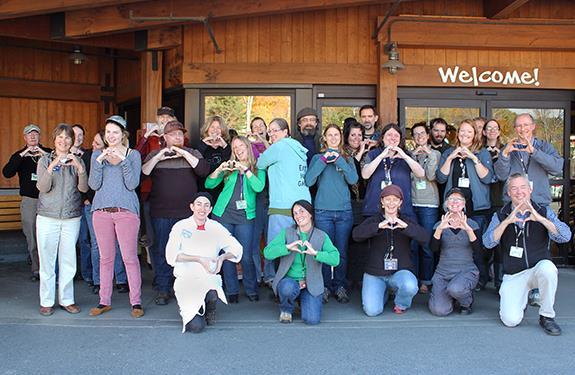Exploring a Co-op's Values

The cooperative business model is alive and well in our state. According to a recent count, there are 130 Vermont cooperatives and credit unions providing a variety of products and services for our modern Vermont economy. Our cooperative businesses are thriving, serving thousands of member-owners in multiple sectors including food, energy, education,housing and finance. Our co-ops are also a significant employer; taken together food cooperatives alone are a top-25 employer in Vermont with annual sales exceeding $100 million.
Our democratic structure informs our decision-making processes. Because each owner has equal authority, co-ops seek to inform and involve every owner when considering our biggest decisions. The transparency, trust and participation necessary to run a co-op fits our Vermont town meeting culture. Inclusive decision-making takes time, but if done well this “crowdsourcing” uncovers great ideas and often leads to better outcomes. Co-ops tend to be less nimble than other business models, yet studies have shown them to be more economically resilient than other business types. Most importantly, we want to know what our owners think by asking some big questions that speak to our values as a business and community.
Like other Vermont cooperatives, Hunger Mountain Co-op strives to balance our limited resources while trying to fulfill a diverse set of goals. In our case, that includes providing healthy and local foods at the most affordable cost possible, being a good employer, paying fair prices to farmers and food producers, and meeting the needs and interests of more than 8,000 member-owners.
At the same time, we strive to employ inclusive decision-making where appropriate to honor our democratic governance structure. Over the coming months, these principles will be on display as we launch a new Co-op Conversation topic with our member-owners and staff. They are invited to share their views about Hunger Mountain’s discount programs through interviews, surveys, small discussion groups and community forums.
The topic is not raised arbitrarily. Like much of central Vermont’s population, our membership is aging and our senior discount category is growing. Rather than react to this alone, we see this as an opportunity to step back and take a broader view of how this may affect the balance that we are guided by. Most importantly, we want to know what our owners think by asking some big questions that speak to our values as a business and community.
Should our co-op provide the same discounts to all members? Do we prefer a benefit structure that is age-based, income-based, labor/participation-based and/or patronage-based? How can our member benefits best reflect the co-op’s mission to build a dynamic community of healthy individuals, sustainable local food systems and thriving cooperative commerce? These are questions we want our owners to answer and help guide any future management decisions.







